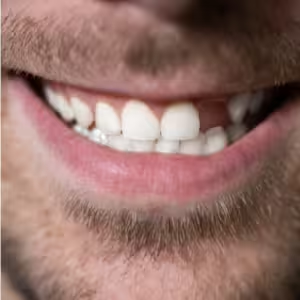
Losing a tooth as an adult can be a distressing experience, impacting not only your smile but also your oral health and self-confidence. Fortunately, modern dentistry offers several effective options for replacing missing teeth, each tailored to meet different needs and preferences. Whether you’re missing one tooth or several, understanding these options can help you make an informed decision about restoring your smile. At Dental 32 in Ashburn, VA, Dr. Ninh and his team specialize in providing personalized solutions to address each patient’s unique dental needs. Let’s explore the various methods available for replacing missing teeth:
1. Dental Implants
Overview: Dental implants are widely considered the gold standard for replacing missing teeth. They consist of a titanium post surgically inserted into the jawbone, acting as an artificial tooth root. This post integrates with the bone over time, providing a stable foundation for a replacement tooth or crown.
Benefits:
- Natural Appearance: Implants look and feel like natural teeth.
- Durability: With proper care, implants can last a lifetime.
- Preservation of Jawbone: They help maintain bone density and facial structure.
- Functionality: Implants allow for normal chewing and speaking.
Procedure:
- Surgical Placement: Initially, the implant post is placed in the jawbone under local anesthesia.
- Healing Period: Osseointegration (fusion with the bone) typically takes a few months.
- Placement of Crown: Once healed, a custom-made crown is attached to the implant, completing the restoration.
2. Dental Bridges
Overview: Dental bridges are used to replace one or more missing teeth by bridging the gap between adjacent teeth. They consist of one or more artificial teeth (pontics) held in place by crowns on the neighboring natural teeth or implants.
Benefits:
- Non-removable: Bridges are fixed in place and don’t require removal for cleaning.
- Restores Functionality: They restore chewing ability and prevent adjacent teeth from shifting.
Procedure:
- Preparation: The adjacent teeth are prepared by removing a portion of enamel to accommodate crowns.
- Impressions: Impressions of the prepared teeth are taken to create a custom bridge.
- Placement: The bridge is cemented into place, restoring the smile seamlessly.
3. Dentures
Overview: Dentures are removable prosthetic devices used to replace missing teeth and surrounding tissues. They come in two types: partial dentures (replacing a few teeth) and complete dentures (replacing all teeth in an arch).
Benefits:
- Affordability: Dentures are typically more affordable than implants.
- Versatility: They can replace multiple teeth or an entire arch.
- Improves Appearance: Dentures restore facial aesthetics and support lips and cheeks.
Procedure:
- Impressions: Impressions of the gums are taken to create a custom-fit denture.
- Adjustments: Several appointments may be needed to ensure proper fit and comfort.
- Care: Dentures require regular cleaning and maintenance.
4. Implant-Supported Dentures
Overview: Implant-supported dentures combine the stability of dental implants with the affordability of dentures. They are particularly beneficial for patients missing multiple teeth or who struggle with loose-fitting traditional dentures.
Benefits:
- Improved Stability: Implants prevent dentures from slipping or shifting.
- Preserves Bone Density: They stimulate the jawbone, preventing bone loss.
- Enhanced Chewing Ability: Allows for more effective chewing and speaking.
Procedure:
- Implant Placement: Typically, 4 to 6 implants are placed per arch.
- Attachment: The denture is attached securely to the implants using special attachments.
- Comfort: Patients experience increased comfort and confidence in their smiles.
Choosing the Right Option
Selecting the best option for replacing missing teeth depends on various factors, including the number of teeth missing, overall oral health, budget, and personal preferences. During a consultation at Dental 32 in Ashburn, VA, Dr. Ninh will perform a thorough examination and discuss your goals to recommend the most suitable treatment plan.
Considerations:
- Health of Adjacent Teeth: Bridges require healthy adjacent teeth for support.
- Bone Density: Dental implants require sufficient bone density for successful placement.
- Cost: Dentures are generally more affordable upfront compared to implants.
- Longevity: Implants offer the longest-lasting solution for tooth replacement.
Each option has its advantages and considerations, and Dr. Ninh and his team are dedicated to helping patients make well-informed decisions about their dental health. Whether you opt for the permanent stability of implants, the convenience of dentures, or the reliable support of bridges, restoring your smile can significantly enhance your quality of life.
At Dental 32, we prioritize patient comfort and satisfaction, ensuring each treatment is tailored to meet your unique needs. Contact us today to schedule a consultation and take the first step toward reclaiming your smile and oral health with confidence. Remember, a complete smile is just a consultation away!
FAQs
Non-covered benefits may not be deemed medically necessary by insurance providers but can still be essential for maintaining dental health.
If a procedure isn’t covered by insurance, it’s essential to discuss alternative payment options with your dentist and budget for the expense accordingly.
Regular dental check-ups are critical for preventive care, regardless of insurance coverage. Skipping them can lead to more significant dental issues in the future
Budgeting for dental expenses ensures that you can cover the costs of non-covered benefits and access necessary treatments when needed.
